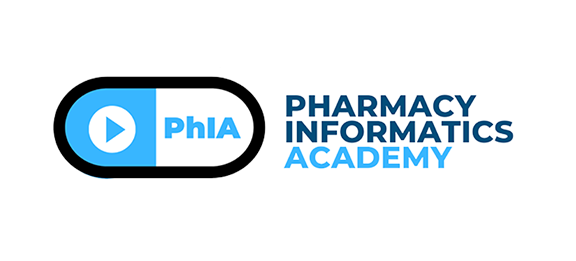Pharmacy Informatics Residency: 5 Reasons Why You Should Do It and 2 Reasons Why You Shouldn’t
Pharmacies, and healthcare in general, are increasingly relying on information technology to improve the efficiency, accuracy, and safety of operations and patient care. As a result, pharmacists are being called on to provide expert assistance in developing these tools, and a pharmacy informatics residency can come in handy. Through a pharmacy informatics residency (you can find the listing here) , you can get trained on the ins and outs of pharmacy information systems, CDS, BCMA, third party vendor tools, and interpersonal/collaborative skills such as communication and project management. A pharmacy informatics residency is an excellent way to learn relevant skills, though it’s worth noting that it is not for everyone.
Today we’re going to take a look at 5 reasons why you should do a pharmacy informatics residency and 2 reasons you shouldn’t.
Should: Structured Learning
A pharmacy informatics residency provides structured learning, so if you thrive in those environments then doing one would provide you with a good, predictable, and expected pathway. Each pharmacy informatics residency is going to be a little bit different, but because it’s a limited program that’s usually 1 or 2 years, structure is key in getting the residents trained in the most efficient manner.
Shouldn’t: Limited Scope
Pharmacy informatics residency programs, though they are structured, are going to be limited on what the program requires. Of course program structures can change slightly from year to year, but the overall timeline is going to be similar for residents each year. If you were able to get an informatics role immediately without residency (and that’s a big if with how competitive the job market is at the time of writing in 2022), you would have more of a focused approach on needing to work on things that immediately matter for the organization. Instead of being placed through a year of a little bit of this, a little bit of that, you’ll be thrown into what’s needed now, and then you’ll be learning on the job of what else is needed next. Your “training” will be focused on more impactful, immediate benefits.
Should: Direct Mentorship
Another great benefit of being in a pharmacy informatics residency program is the ability to work under the mentorship of practicing pharmacy informaticists. You can learn from all their interactions, experiences, successes, and failures. Having these as part of your arsenal going into practice will help you get to a fully functioning professional in a faster manner. Also, fostering the mentorship relationships will allow you to form and expand your network.
Should: Time to Learn Operations and Additional Practice Before Being Independent
Having that time period between “just graduated” and “independent practitioner” can help you with learning the ropes before being thrown into the wild. Residency allows you to have the opportunity to learn from your mistakes while you are still under the guidance of mentors, and the time in the residency program will give you more opportunities to learn about the operations before having to work independently as part of it. Whether it be a 1 year or 2 year residency, this intermediary time period can be much appreciated as a stepping stone towards fully independent pharmacy informatics practice.
Shouldn’t: Financial Challenges
It’s no surprise that pharmacy residents in any setting are compensated less than what practicing pharmacists are compensated with. Going through a pharmacy informatics residency can be tough because you’re making an investment in your education but taking a pay cut to do so. In addition, pharmacy residency programs in informatics can exist in 1 year formats and also 2 year formats. Going through 2 years of residency will be an additional financial burden if you have student loans building up, so it’s something to seriously consider if you are facing challenges with repayment.
Should: Future Opportunities
Though you are taking that paycut during the residency, you’re setting yourself up for the future. There’s nothing better for future job opportunities than networking, and being in a pharmacy informatics residency allows you to do just that. Not only do you get to network immediately with your program directors and colleagues, but you will be presenting at national conferences that allow you to form additional network connections. On top of that, you are now trained in using the EHR and understanding the operations of where you practiced for residency, and it will give you a big leg up for future employment at the same organization since there’s less of a lead time before you can start doing work that matters.
Interested in learning more about pharmacy informatics and don’t know where to start? Check out our free introductory course if you are completely brand new. For more details, check out the Practical Guide to Pharmacy Informatics.


How to Find Actual Pharmacy Informatics Experience
May 4, 2022 @ 5:36 pm
[…] have a whole article written about whether an informatics pharmacy residency is right for you or not, so I won’t go into too much detail here, but pharmacy residency programs are the most […]